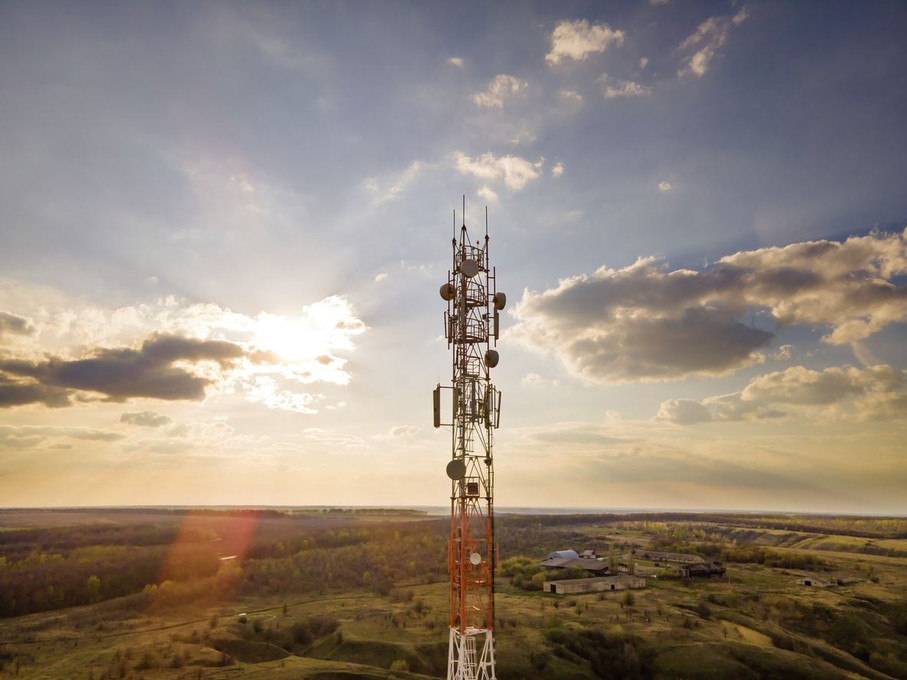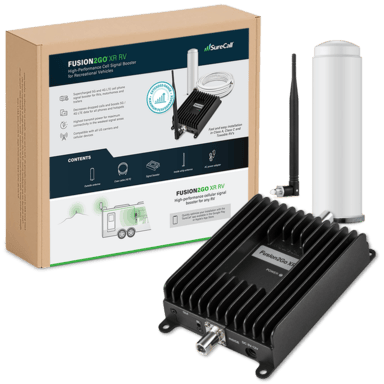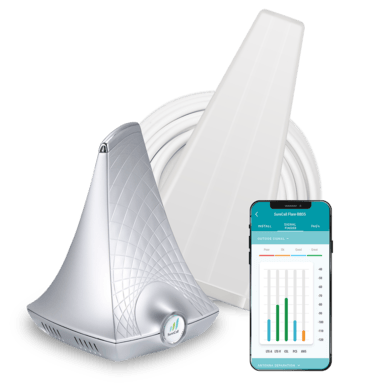
Are Cell Phone Signal Boosters Safe? What You Should Know
Posted by JBlakely on 29th Mar 2021
At work, at home, or on the road, cell signal boosters have paved the way for remote work, emergency communications, and more.
At the same time, the widespread use of these devices has also raised some security concerns – and in some instances – rightly so. Cell phone signal boosters are powerful devices—they really work. Apart from shaping the telecommunications industry, these devices are breaking new ground, and will continue to do so with the 5G rollout.
So, let’s take a closer look at the security risks involved with cell signal boosters, as well as how these risks are affecting the greater role of these devices in the industries of the future.
Unregulated Cell Signal Boosters vs. FCC-Approved Devices
While very useful, cell phone signal boosters can become dangerous in the wrong hands. From coordinated signal disruptions to signal blackouts due to equipment mishandling or manufacturing defects, cell signal boosters can affect cellular networks across large areas in various ways.
When they’re poorly manufactured, misconfigured, or intentionally reconfigured, cell boosters can actually knock out cell service in particular areas. This can be particularly disastrous in settings like hospitals, areas with ongoing emergencies or disasters, high-security areas, schools, and other places and conditions that rely on cellular networks for different applications.
The reality is that cell phones have become a utility that we all rely on daily. This is precisely why the Federal Communications Commission (FCC) has introduced strict regulations governing the manufacturing and operation of cell signal boosters, amplifiers, or repeaters.
In a nutshell, the simplest way to avoid the inherent risks of using these devices is by avoiding unregulated boosters. While unregulated boosters may be cheaper, boosters approved by the FCC (like those sold by SureCall) are much less likely to be mishandled, used for nefarious purposes, or come with dangerous defects.
5G, Boosters, And Other Emerging Technologies And Trends
Properly understanding and managing the risks of cell signal boosters entails coming to grips with how these devices are evolving alongside different but interconnected emerging technologies, trends, and fields. For instance, signal boosters could be the answer to 5G’s current problems with network densification, which can be attributed to the rapid development of the Internet of Things (IoT) and how widespread smart devices have become.
This bodes very well for any enterprise looking to leverage data for actionable business insights. Many of the improvements expected from 5G are related to online data management and collection, including but not limited to benefits such as no-latency data transfer, faster cloud technology adoption, and more secure data applications. In short, big consumer data is now a huge part of business, and it’s only becoming bigger thanks to 5G.
In the future, data experts will be able to use the information from our 5G-enabled phones in a variety of practical business applications. In particular, marketing stands to benefit a lot from the impending 5G rollout. With IoT-enabled remote working and eLearning technologies, smartphones and other mobile devices are now being used by marketers to gather customer data. This is why today’s marketing degrees teach the next generation of marketing professionals to glean actionable data – sources that will only grow and develop further through 5G. Propelled by next-gen cell signal boosters, the 5G network will enhance the collection of actionable business data through not just our phones, but every smart device we use at work. Apart from affecting how tomorrow’s marketing and communications experts are trained, this underscores how 5G – alongside boosters – will empower the growth of the IoT and other emerging Industry 4.0 technologies.
Cell Signal Booster Security In The Modern Era
These conditions mean that cell booster security will become much more entangled with data security in the future. When you use unregulated or misconfigured cell signal boosters, you could be hampering your own organization’s digital transformation – both in terms of leveraging 5G as well as improving your ability to collect and analyze data for business.
That being said, it should be noted that signal boosters are only as secure as the network that they are boosting. This means that boosters don’t make the cellular devices any more hackable, since all they’re doing is amplifying the signal from the macro network into a given area like your home, your office, or your car. Furthermore, by simply sticking to FCC-approved devices like SureCall’s boosters, you can more securely amplify cell signals where they’re needed – without opening you or your organization to any unnecessary risks.
Fusion2Go XR RV Cell Phone Signal Booster
Fusion4Home Yagi Panel Indoor Signal Booster



